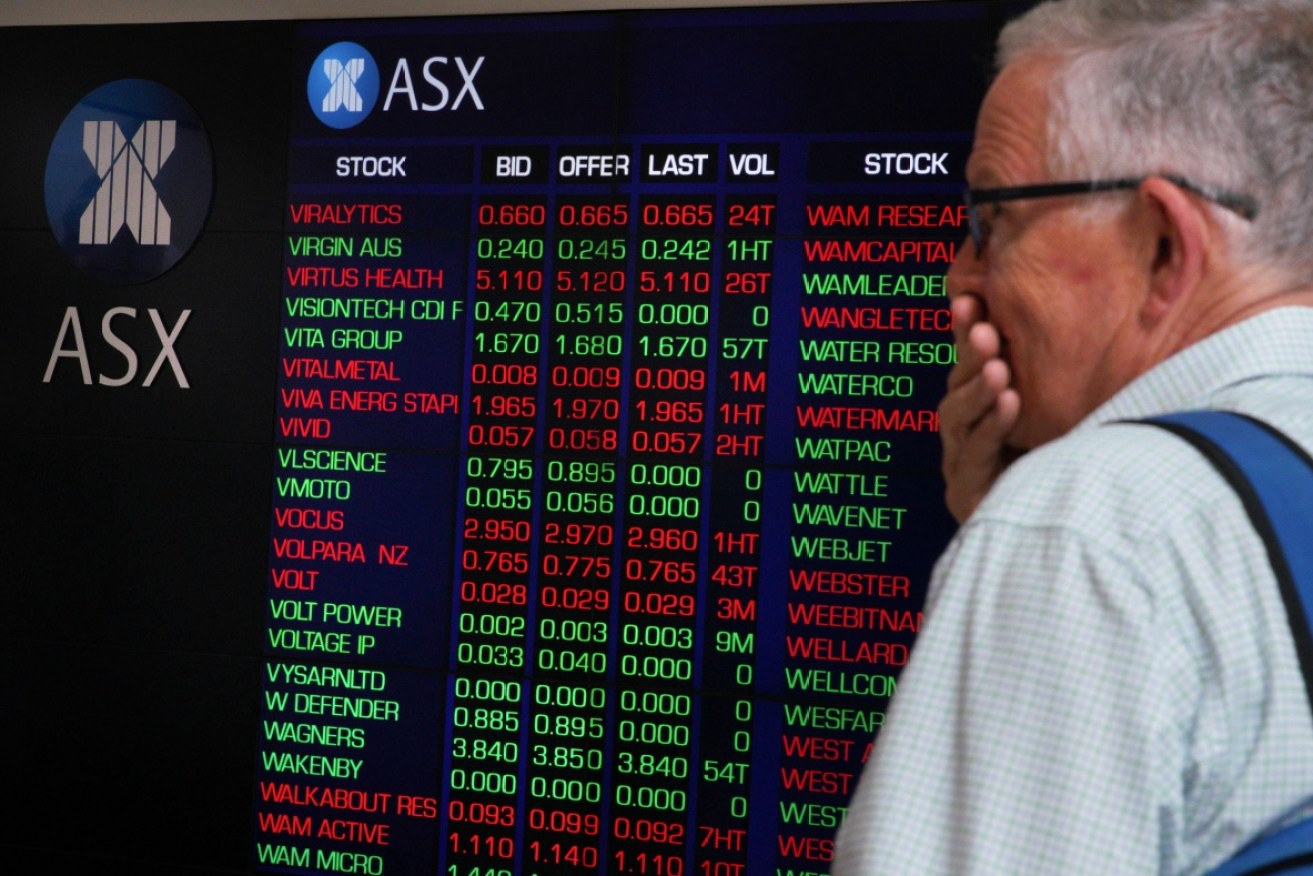Billions wiped from shares as US-China trade war whips up fear


The market lost more than $30 billion within a few hours on Monday morning. Photo: AAP
The Australian sharemarket has lost about $30 billion in reaction to the US and China ramping up their trade war over the weekend.
In another day of carnage on Australian markets, the benchmark ASX 200 and broader All Ordinaries indices lost 83 points or 1.3 per cent by the close.
But things had been much worse earlier in the day, with the market dropping by 1.7 per cent within hours of the open.
The Australian dollar also took a hammering – as investors fled to the safety of bonds and the Japanese yen – coming close to a decade-low of 66.775 US cents.
The Australian dollar was last down 0.2665 per cent at 67.36 US cents, after falling for a third straight session.
Things were even worse for the Kiwi, with the New Zealand dollar slipping to 63.74 US cents – a level not seen since September 2015.
Among the hardest-hit were building materials giant Boral (-19.7 per cent), G8 Education (-16.2 per cent), Viva Energy (-8.33 per cent), Maybe Pharma Group (-8.7 per cent) and Pilbara Minerals (-7.8 per cent).
But no sector was unscathed, with energy down 3.4 per cent, technology down 1.9 per cent and health care down -1.9 per cent, the weakest performers.
Only 19 stocks posted gains – many of them being gold miners such as Resolute Mining (+14 per cent), St Barbara (+9.9 per cent) and Regis Resources (+9.7 per cent).
Markets around the world were spooked on Friday when US President Donald Trump announced an additional 5 per cent duty on $US550 billion ($816 billion) of Chinese goods, hours after China unveiled retaliatory tariffs on $US75 billion worth of US products.
This was met with fury by Mr Trump, who tweeted threats of further moves and “ordered” American companies to seek alternatives to China.
He also threatened more duties in addition to all actual and planned tariffs this year.
But Mr Trump appeared on Sunday to back away on his threat to order US companies out of China.
On Monday, China said it was willing to resolve its trade dispute with the United States through “calm” negotiations and that it opposes the escalation of the conflict, Vice Premier Liu He, who has been leading the talks with Washington, said.
Mr Liu, speaking at a tech conference in south-west China’s Chongqing on Monday, said nobody benefited from a trade war.
“We are willing to resolve the issue through consultations and cooperation in a calm attitude and resolutely oppose the escalation of the trade war,” said Mr Liu, who is President Xi Jinping’s top economic adviser.
“As it stands, there is simply no light at the end of the tunnel,” said David Bassanese, chief economist at Australian ETF manager BetaShares, which has over $8 billion in assets.
“My sense is China will not relent,” he added.
“My concern is that economic conditions may need to get a lot worse before [Mr Trump] crosses that bridge, which … likely means the [US] Fed [Federal Reserve] will be forced to cut rates by at least 50 basis points at its September 17-18 policy meeting.”
Federal Reserve chairman Jerome Powell, last week pledged to “act as appropriate” to keep the US economy healthy, although he stopped short of committing to rapid-fire rate cuts.
Still, the market is pricing in one 25-point cut in September and more than 110 basis points of cuts by the end of 2020.
Australia and New Zealand are also expected to have more rate cuts, with financial markets pricing in 50 basis points of reductions from the Reserve Bank of Australia (RBA) by early next year to an all-time low official cash rate of 0.5 per cent.
-with AAP








